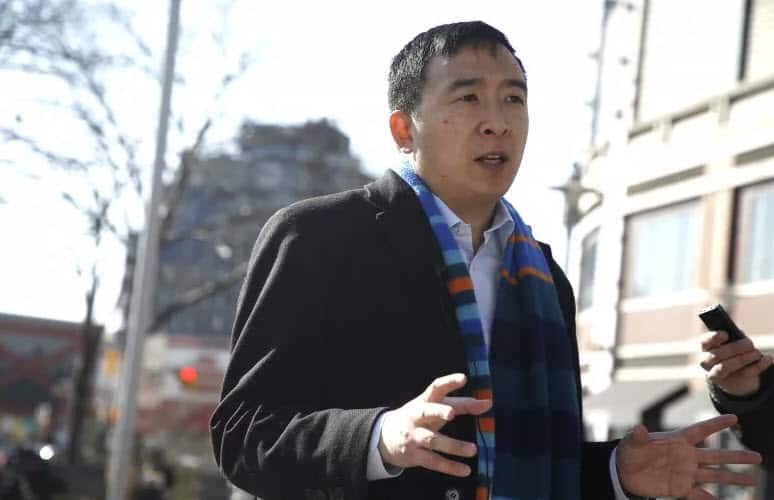This article was originally published on Newsweek.
For many years, the fear of upcoming mass unemployment due to artificial intelligence and automation has spurred conversations about the future of work and inspired advocacy for a universal basic income (UBI). After subsiding for a while and becoming just a talking point associated with Andrew Yang‘s presidential campaign, interest in UBI has revived amid the COVID-19 pandemic.
To UBI proponents, the high levels of unemployment and economic uncertainty associated with the pandemic demonstrate the need for the government to play a larger role in people’s lives. But while UBI may sound attractive to many during challenging times because it promises some level of financial security, it is important to consider ways that it fails to support—and could ultimately undermine—human flourishing. A universal basic income would make it harder for recipients to develop a sense of meaning in life and to accumulate forms of human capital that promote self-sufficiency and economic growth.
Most UBI analyses fixate on basic economic questions, such as how the policy might impact labor-force participation and how it would be paid for—and for good reason. The few discussions that do account for how UBI might influence psychological variables tend to narrowly consider emotional dimensions of wellbeing that make UBI appear to be purely beneficial. It should come as no surprise that receiving “free” money may boost positive emotions and at least temporarily reduce stress. But this is an overly hedonic and narrow view of wellbeing that neglects important psychological aspects of human flourishing.
Human flourishing requires developing a sense of meaning in life, which should be taken very seriously in UBI discussions. When people perceive their lives to be meaningful, they are less likely to suffer from mental-health problems and better able to recover if they experience mental-health challenges. Meaning also positively predicts physical health, longevity and economic success. This is because meaning has motivational power. It is a self-regulatory psychological resource that drives people to push forward when life gets difficult and to have a positive outlook on life.
Meaning inspires agency. When people believe their lives are meaningful, they view themselves as having a significant role to play in the world, energizing the types of goal-directed action that help families, communities and the broader society thrive. Work can be an important way to help people develop a sense of meaning—though not in the way that many assume.
When people describe what gives their lives meaning, most don’t directly point to their jobs. They point to their families and other relationships. Work generates meaning not because everyone loves their jobs, but because jobs allow people to financially provide for their families and be a contributing member of their community. When people do describe their jobs as meaningful, it is typically because they see how their work helps others in some way.
Some UBI advocates argue that many jobs do not provide meaning because they are tedious or unpleasant. This reflects a misunderstanding of the connection between meaning and work. If employees don’t view their jobs as inherently meaningful, part of the problem might be that the employer, and perhaps broader society, failed to promote a culture that helps workers—regardless of their specific jobs—feel valued. Employers should keep this in mind, since the more workers feel like meaningful members of an organization, the more motivated and happier they are at work.
Of course, not all work is paid labor, but individuals are better able to secure meaning-providing opportunities if paid and unpaid work roles are negotiated at the family level, rather than if the state disrupts natural human interdependence by promoting government dependence.
We are highlighting meaning in life because it plays a fundamental role in supporting other forms of human capital. When people feel meaningful, they are more energized, driven, agentic, optimistic, resilient, creative, future-oriented and motivated to help others.
A focus on the psychology of human flourishing can help us think more clearly about what ideas and policies we should advocate for. Programs like UBI reduce the focus on promoting a vibrant and dynamic economy that creates jobs for more people. Such programs may also work against the entrepreneurial spirit, which depends on personal agency. Indeed, recent research shows that it is when people view meaning in life as within their control (existential agency) that they are most motivated to pursue entrepreneurial goals.
At the end of the day we should not lose focus on the simple fact that the most common path to upward economic mobility is through a job, and through the skills, social connections and existential capital a job helps build. UBI does nothing to orient individuals toward self-sufficiency and long-term flourishing.
Yes, some people would use the extra money to pursue the types of goals that lead to upward mobility. But these are more likely to be the types of individuals who would have succeeded on their own without UBI than the types of individuals who could use some guidance about how to improve their lives and the lives of their families.
Many of the financially successful adults who support UBI themselves already benefited from family, cultural and educational structures that support meaning-oriented goal-striving through self-discipline, work ethic, self-confidence and creative problem solving. UBI does not help make those structures more accessible to, and more valued by, poor Americans. Instead, by being a permanent, no-strings-attached form of government support, UBI may send the implicit message that there is little or no hope for some people to become financially independent, to reach a point in which they are supporting their own families and making meaningful contributions to society. In other words, UBI could inadvertently decrease the psychological capital needed to increase financial independence and upward mobility.
UBI seems like a simple way to make people’s lives easier and to defend against fears of a future without work. However, a life without work is not a recipe for human flourishing. Humans are at their best when they are creating, building, experimenting, innovating and focusing on ways they can make a difference in the world. We should be very cautious about taking actions that could undermine such ambitions.
Clay Routledge is a professor of management at North Dakota State University, a faculty scholar at the Challey Institute for Global Innovation and Growth, and a senior research fellow at the Archbridge Institute, where Gonzalo Schwarz is the President and CEO.


